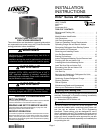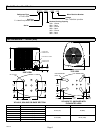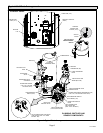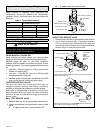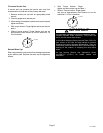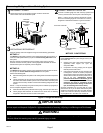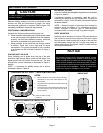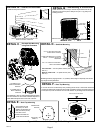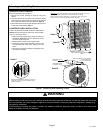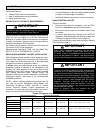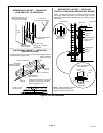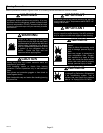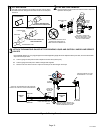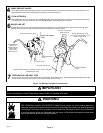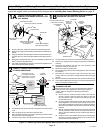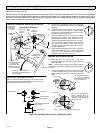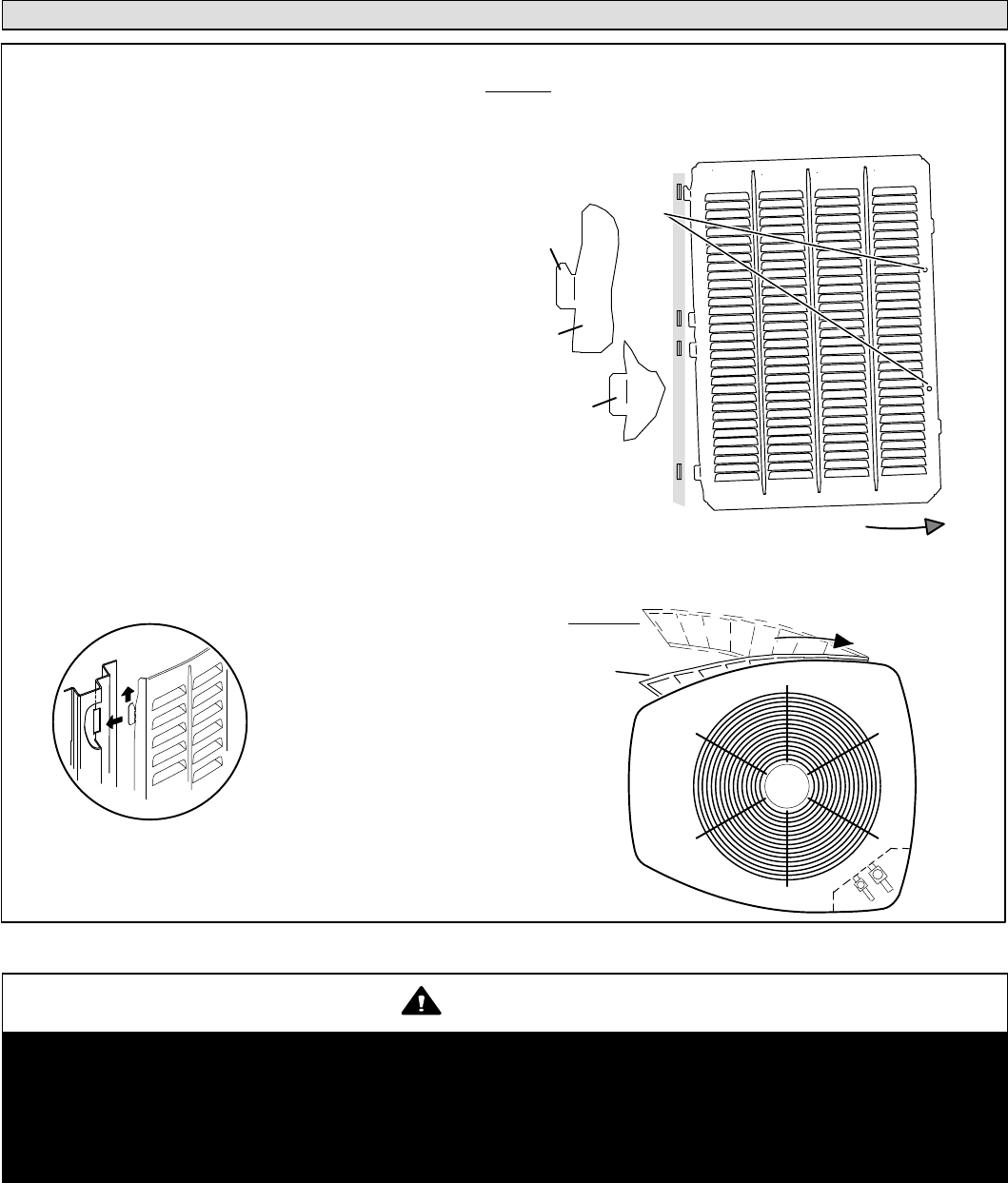
Page 9
XP14 SERIES
Removing and Installing Panels
LOUVERED PANEL REMOVAL
Remove the louvered panels as follows:
1. Remove two screws, allowing the panel to swing open
slightly.
2. Hold the panel firmly throughout this procedure. Rotate
bottom corner of panel away from hinged corner post until
lower three tabs clear the slots as illustrated in detail B.
3. Move panel down until lip of upper tab clears the top slot in
corner post as illustrated in detail A.
LOUVERED PANEL INSTALLATION
Position the panel almost parallel with the unit as illustrated in
detail D with the screw side as close to the unit as possible.
Then, in a continuous motion:
1. Slightly rotate and guide the lip of top tab inward as
illustrated in detail A and C; then upward into the top
slot of the hinge corner post.
2. Rotate panel to vertical to fully engage all tabs.
3. Holding the panel’s hinged side firmly in place, close
the right−hand side of the panel, aligning the screw
holes.
4. When panel is correctly positioned and aligned, insert
the screws and tighten.
Detail A
ROTATE IN THIS DIRECTION;
THEN DOWN TO REMOVE
PANEL
SCREW
HOLES
LIP
IMPORTANT! DO NOT ALLOW PANELS TO HANG ON UNIT BY TOP TAB. TAB IS FOR
ALIGNMENT AND NOT DESIGNED TO SUPPORT WEIGHT OF PANEL.
PANEL SHOWN SLIGHTLY ROTATED TO ALLOW TOP TAB TO EXIT (OR
ENTER) TOP SLOT FOR REMOVING (OR INSTALLING) PANEL.
MAINTAIN MINIMUM PANEL ANGLE (AS CLOSE TO
PARALLEL WITH THE UNIT AS POSSIBLE) WHILE
INSTALLING PANEL.
PREFERRED ANGLE
FOR INSTALLATION
ANGLE MAY BE TOO
EXTREME
HOLD DOOR FIRMLY TO THE HINGED
SIDE TO MAINTAIN
FULLY−ENGAGED TABS
Detail C
Detail B
Detail D
Figure 7. Removing and Installing Panels
WARNING
To prevent personal injury, or damage to panels, unit or structure, be sure to observe the following:
While installing or servicing this unit, carefully stow all removed panels out of the way, so that the panels will not cause
injury to personnel, nor cause damage to objects or structures nearby, nor will the panels be subjected to damage (e.g.,
being bent or scratched).
While handling or stowing the panels, consider any weather conditions, especially windy conditions, that may cause
panels to be blown around and battered.



